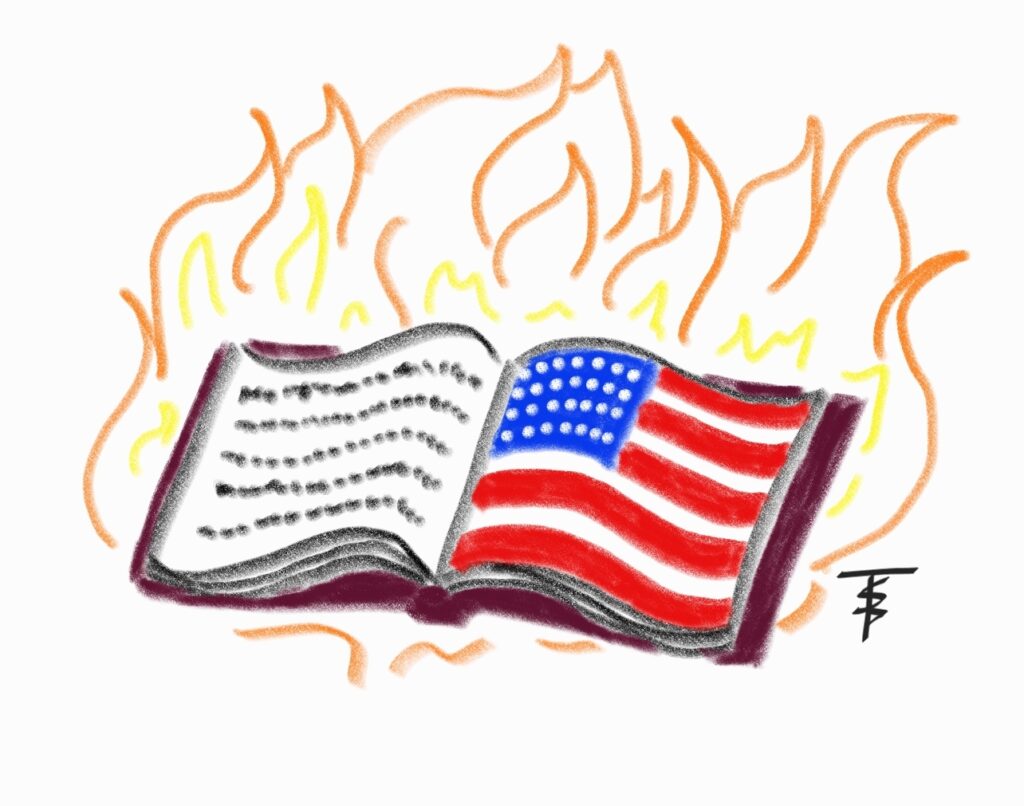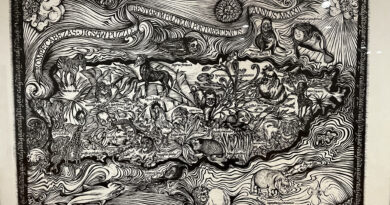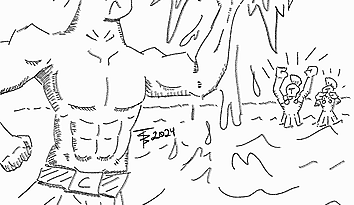Book Bans Are Real, Despite Trump Administration Claims
Written by Trevor Stone Priesnitz
On January 24th this year, the Department of Education released a statement on their website claiming that book bans do not exist in the United States. They argued that school districts do not ban books, but rather “establish commonsense processes by which to evaluate and remove age-inappropriate materials” (Department of Education 2025). To clarify, the Cambridge dictionary defines banning as: “to forbid (= refuse to allow) something, especially officially.” So by “commonsense,” removing a book from a collection based on opinion is banning it. One should not have to throw basic definitions at our own Department of Education. However, this should not be dismissed as mere imprudence. This could be a move to try and step over constitutional protections for citizens.
The First Amendment of the US Constitution protects citizens’ rights to publish, read, speak, and access materials at their own discretion. It is hypocritical that an administration that ordered for “Restoring Freedom of Speech and Ending Federal Censorship” would push for removing First Amendment rights for people wishing to access library materials (The White House 2025). Now, it is important to look at the wording of this executive order pertaining to censorship. It particularly focuses on federal censorship limitations, not necessarily on proctoring states or local districts. One could surmise this as the Trump administration trying to move towards giving states and towns more power over issues pertaining to civil rights. This would line up with other far-right efforts to push away from federal protections for rights such as gender-affirming care or abortion. This could be troublesome, as federal protections existed in the past in order to prevent hateful discrimination on a local level.
The easiest thing that you can do to help is to exercise your right to access public libraries, and use materials that are possibly going to be censored or banned. These are materials such as those pertaining to People of Color, the Queer community, and women. Participate in school board and town meetings, and speak up about access to library materials. Fill out surveys for your local libraries to let them know how you feel. Participate in protests to protect your community’s rights. And possibly most important of all, contact your local legislators. This can be as simple as an email or a phone call.
Why does this matter? Access to library materials is constitutionally protected, and this action from the Trump Administration could possibly be infringing upon citizens’ rights. Being able to access other communities’ perspectives is essential to supporting a healthy society. And if you are not cisgender, heterosexual, or white, the materials being banned almost certainly contain representation for your community. Many other books that could be banned give perspective to alternative forms of government, or criticize our own government. Diversity in politics is necessary in order to stave off autocracy. To not be seen or heard is not only unconstitutional, it is dehumanizing.
To find your local legislators:
cga.ct.gov/asp/menu/cgafindleg.asp
Sources:
https://www.ed.gov/about/news/press-release/us-department-of-education-ends-bidens-book-ban-hoax
(I shouldn’t have to put this but alas)
https://dictionary.cambridge.org/dictionary/english/ban
Featured Image by Trevor Stone Priesnitz




